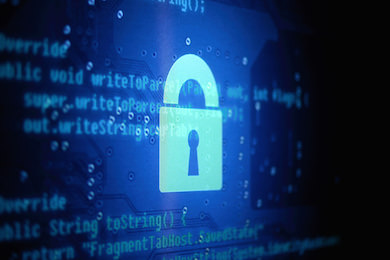Why Aren’t Bernie Sanders and Hillary Clinton Talking About Encryption?
The controversy over encryption has been one of the biggest public debates of the year so far, yet the Democratic presidential candidates have been largely silent on the subject. Encryption is the process of encoding information to keep data private and secure. (Yuri Samoilov / CC BY-SA 2.0)
Encryption is the process of encoding information to keep data private and secure. (Yuri Samoilov / CC BY-SA 2.0)
Earlier this year, Reuters reported that “long-awaited draft legislation” circulating in the Senate would “give federal judges clear authority to order technology companies like Apple to help law enforcement officials access encrypted data.” But on Thursday morning, the news service added that White House was not going to endorse the bill:
The decision all but assures that the years-long political impasse over encryption will continue even in the wake of the high-profile effort by the Department of Justice to force Apple to break into an iPhone used by a gunman in last December’s shootings in San Bernardino, California.
… Although the White House has reviewed the text and offered feedback, it is expected to provide minimal public input, if any, the sources said.
Its stance is partly a reflection of a political calculus that any encryption bill would be controversial and is unlikely to go far in a gridlocked Congress during an election year, sources said.
The White House’s stance is a reflection of deeply divided opinion on encryption: While some say that giving the authorities access to encrypted information would help them prevent terrorist attacks and solve other crimes, others argue that “back-door” technology could easily fall into the hands of hackers and criminals, putting private information at risk.
But it’s not just the White House that is hanging back on encryption: The Democratic presidential candidates have also kept relatively quiet, too. Both Hillary Clinton and Bernie Sanders have had little of substance to say on the subject, as illustrated by their vague statements in a debate in January. Sanders’ website indicates that he voted against the Patriot Act and opposes mass surveillance, but Sanders himself has mainly focused on other issues during his campaign. Clinton, too—beyond offering a few confusing propositions—has been subdued on encryption.
Meanwhile, the FBI now claims it can unlock an iPhone on its own, while the popular messaging app WhatsApp has decided to encrypt its entire network.
The issue of encryption is only going to become more important for our wired electorate, which would benefit from knowing where the presidential candidates stand.
–Posted by Emma Niles
Your support matters…Independent journalism is under threat and overshadowed by heavily funded mainstream media.
You can help level the playing field. Become a member.
Your tax-deductible contribution keeps us digging beneath the headlines to give you thought-provoking, investigative reporting and analysis that unearths what's really happening- without compromise.
Give today to support our courageous, independent journalists.






You need to be a supporter to comment.
There are currently no responses to this article.
Be the first to respond.